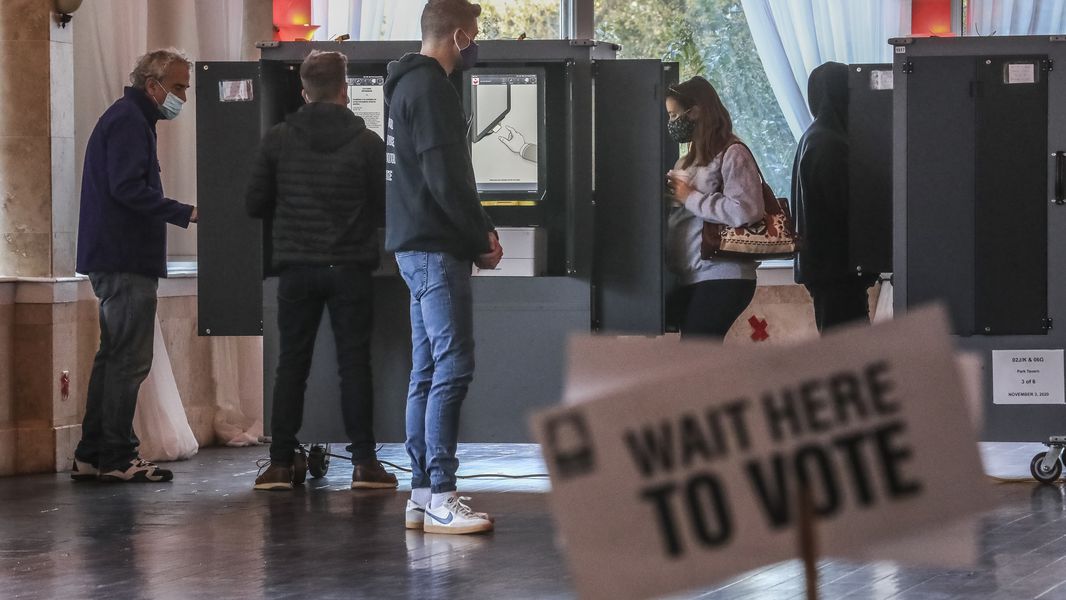
November 3, 2020 Atlanta: Voters at the voting machines at Park Tavern in Atlanta on Tuesday, Nov. 3, 2020. Voters lined up outside polling places Tuesday morning to be among the first to cast their votes on a crucial Election Day. It’s expected to be the biggest day of voting in Georgia, with turnout reaching as high as 2 million. Another 3.9 million people already cast early or absentee ballots. Some told The Atlanta Journal Constitution that they expect social unrest whether Biden or Trump wins the election. (John Spink / [email protected])
By Mark Niesse
A federal judge on Monday halted challenges to the eligibility of over 4,000 Georgia voters, ruling that they must be allowed to cast regular ballots in the U.S. Senate runoff election.
U.S. District Judge Leslie Abrams Gardner granted a restraining order that prevents election officials in Muscogee and Ben Hill counties from moving forward with canceling voter registrations as early voting is underway.
The ruling comes in response to an attempt by the Texas-based organization True the Vote and the Georgia Republican Party to challenge more than 364,000 voters whose names showed up on U.S. Postal Service lists showing their addresses have changed.
Most county election boards across Georgia have rejected the challenges, but Muscogee and Ben Hill counties had required those voters to cast provisional ballots that would have been counted only after further review.
The runoffs will decide which political party holds a majority in the U.S. Senate. Republican Sens. Kelly Loeffler and David Perdue face Democrats Raphael Warnock and Jon Ossoff in the Jan. 5 election.
Gardner, the sister of Democrat Stacey Abrams, ruled that the voter challenges violated federal laws protecting voting rights.
Systemic removals of voters are barred within 90 days of a federal election, according to the National Voter Registration Act. In addition, voters can’t be removed until they’ve been notified and then don’t vote in two federal election cycles.
Gardner ruled in favor of the plaintiffs, Majority Forward, a nonprofit organization that supports voter registration efforts represented by Democratic Party attorney Marc Elias.
“Republicans tried to disenfranchise over 300,000 Georgia voters. This victory means 4,000 voters in two counties are protected,” Elias wrote on Twitter. “We continue to monitor how other Georgia counties respond to the suppression scheme. Where necessary, we will sue and we will win.”
Change of address lists are unreliable sources for challenging voter eligibility, according to the plaintiffs. Voters who temporarily forward their mail, including members of the military and caregivers, are still allowed to participate in Georgia elections. In addition, voters may have moved back to Georgia.
Gardner’s ruling protected the registrations of 4,033 voters in Muscogee County and 152 voters in Ben Hill county.
The largest remaining challenge to Georgia voter eligibility is pending in Forsyth County, where the elections board found probable cause to contest the residency of over 5,000 voters based on a request by state Rep. Marc Morris, a Republican from Cumming.
Read the original story on AJC.com.











